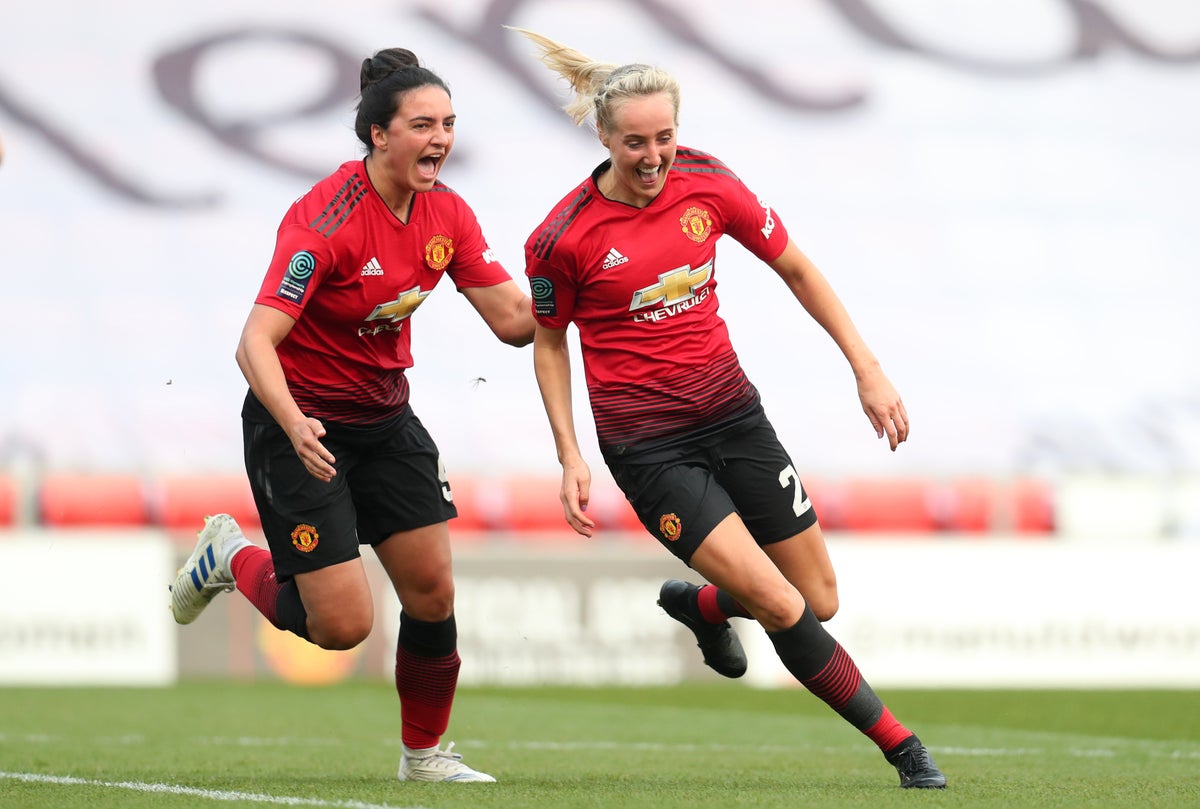
Legal documents are hardly as splashy as a European Championship trophy, but a vital policy shift this Women’s Super League season could prove just as game-changing for players as England’s historic victory was.
The beginning of the WSL and Championship campaigns heralds the introduction of enhanced maternity and long-term illness and injury benefits, offering exponentially more assurance for players across the top two flights of the English women’s game.
In 2021, midfielder Jade Moore, then playing with Orlando Pride, suffered an National Women’s Soccer League (NWSL) season-ending knee injury so serious she contemplated retirement before Manchester United signed her in January. That same month, United team-mate Millie Turner was forced to halt all physical activity indefinitely following the diagnosis of a rare and frightening carotid artery dissection.
And in August, Chelsea goalkeeper Ann-Katrin Berger announced she was beginning treatment for a recurrence of thyroid cancer after a four-year remission.
“It’s huge,” said Moore, who has earned over 50 caps for the Lionesses. “We put our bodies on the line every single day, and if you don’t get that cover or that support then you’re basically flogging your body and having no cover. Both (myself and Millie) have suffered injuries over this past 18 months. There were some that for both of us, actually, could have stopped us from playing.
“I think when you’ve been put in those positions and you have to have a look at what your career looks like off the pitch, it does start to open the door to actually what financial cover is there, what access do we have as sportswomen?
“And the maternity thing for me I think that should be a given. Unfortunately the world that we live in with sport at the minute it’s not quite there, and hopefully women’s football is going to bridge that gap nicely.”
Turner, whose symptoms included slurred speech and a thumping heartbeat in her ear, is now fit for Saturday’s WSL curtain-raiser, where United, a side also boasting Lionesses Ella Toone, Mary Earps and Alessia Russo, will take on Tottenham at Tottenham Hotspur Stadium.
It is one of several Premier League grounds hosting WSL or Championship matches in 2022-23, with others set for Stamford Bridge, Selhurst Park, Anfield, Old Trafford and the Amex.
Some clubs have their own individual policies in addition to the landmark agreement, ratified by the FA and the Professional Footballers’ Association (PFA) in January.
“The new maternity policy will form part of a club’s licensing agreement, and must be offered to players to ensure license criteria is met,” read an FA statement.
“The other uplifts will form part of a revised Standard Contract for Women’s Football.
“Under the new policy, a player going on maternity leave will be paid 100 per cent of her weekly wage, as well as any other remuneration and benefits for the first 14 weeks, before reverting to applicable statuary rate.”
The policy has no qualifying period, while it would have previously only been offered to players who had been employed by their clubs for 26 weeks or more.
The new long-term sickness pay provision, which also ensures greater protection from termination due to injury, mirrors that enjoyed by players’ male counterparts in all new contracts.
They will receive their basic wage for the first 18 months in the event of injury, then half their wages for the length of the injury thereafter. Previously, they received just six months’ pay.







